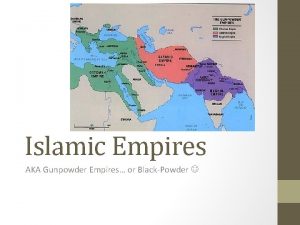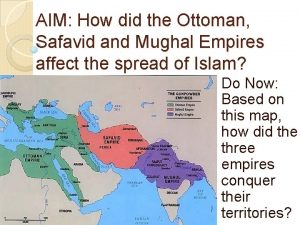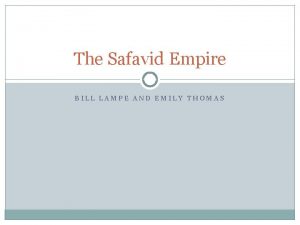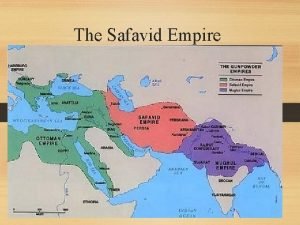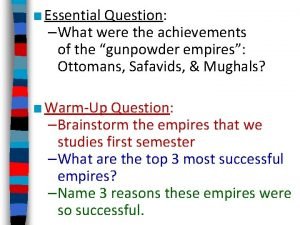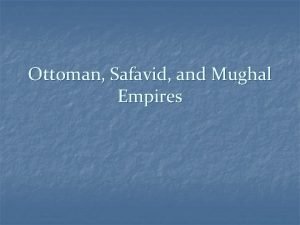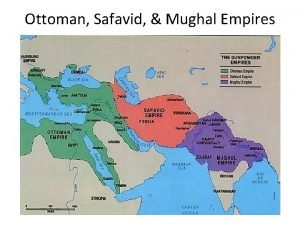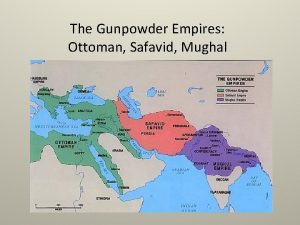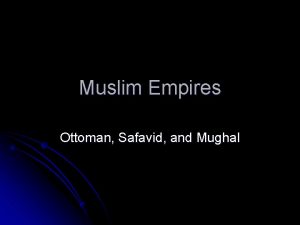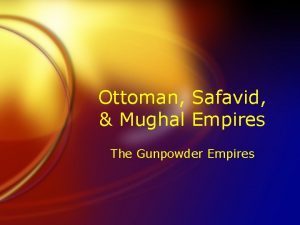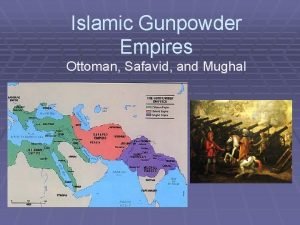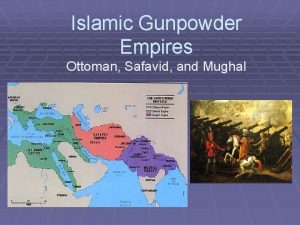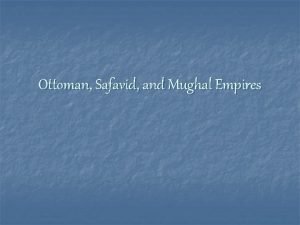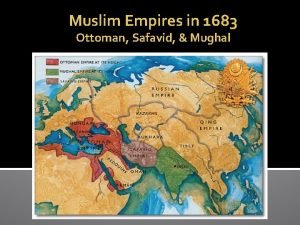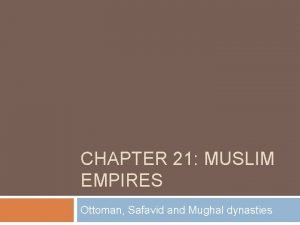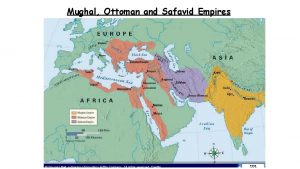Ottoman Safavid Mughal Empires Compared Ottoman Safavid Mughal













- Slides: 13

Ottoman, Safavid, & Mughal Empires - Compared

Ottoman, Safavid, & Mughal Empires: compared • They were Islamic. • They existed at about the same time – Suleiman, Abbas I, Akbar were the rulers at the height of each empire and were contemporaries.


CAPITALS Ottoman • Bursa then Istanbul Sulimaniye Mosque Mughal • Delhi The Red Fort

Safavid - Isfahan

Ottoman, Safavid, & Mughal Empires: compared • They were Military Empires & “Gunpowder Empires”

Ottoman Cannon 1600 s

Ottoman, Safavid, & Mughal Empires: compared • They were Military Empires & “Gunpowder Empires” • Each had a centralized government with a Sultan, Shah, or Emperor as the key leader • Bureaucracies managed the empires (Ottoman bureaucracy was the most extensive).

Ottoman, Safavid, & Mughal Empires: compared • Each had Slavery as an institution – non. Muslims were slaves but the status of slaves varied widely Concubines of India


Ottoman, Safavid, & Mughal Empires: compared Factors of Decline were similar – • Inflation & Taxation of the lower classes • The Land-Grant system (land given to military officers but not hereditary) limited development • Weak rulers

Religious Intolerance • Religious minorities were persecuted at times – Sunnis, Shi’a, Sikhs, others • non-Muslims paid higher taxes • They launched missionary efforts and reforms aimed at religious nonconformists

Religious Tolerance • Government positions were available to outsiders and non. Muslims • Christians and Jews and their communities were given special status • Some reforms were made to benefit non. Muslims
 How did the ottoman safavid and mughal empires arise
How did the ottoman safavid and mughal empires arise Ottoman, safavid, and mughal empires venn diagram
Ottoman, safavid, and mughal empires venn diagram Ottoman safavid and mughal empire map
Ottoman safavid and mughal empire map Ottoman safavid and mughal empire map
Ottoman safavid and mughal empire map Shiism
Shiism Millet system
Millet system Land empires vs maritime empire
Land empires vs maritime empire Safavid empire characteristics
Safavid empire characteristics Emily lampe
Emily lampe Safavid empire
Safavid empire Achievements of the safavid empire
Achievements of the safavid empire Gsprite
Gsprite Safavid empire achievements
Safavid empire achievements Where is the safavid empire located
Where is the safavid empire located
